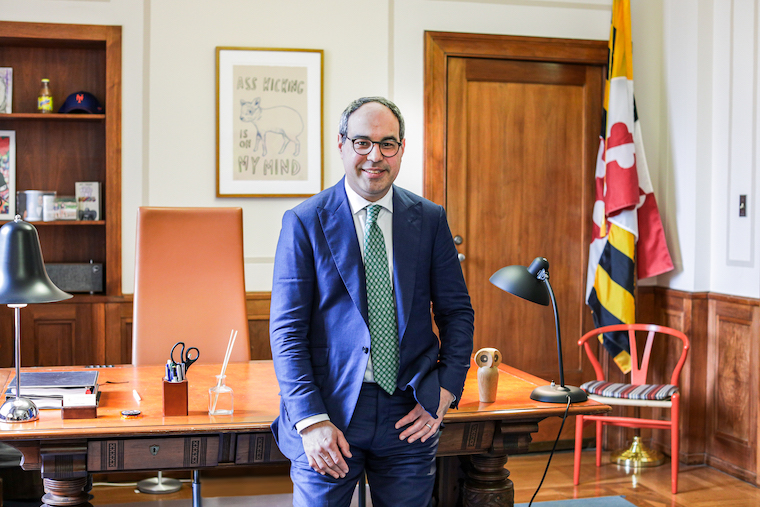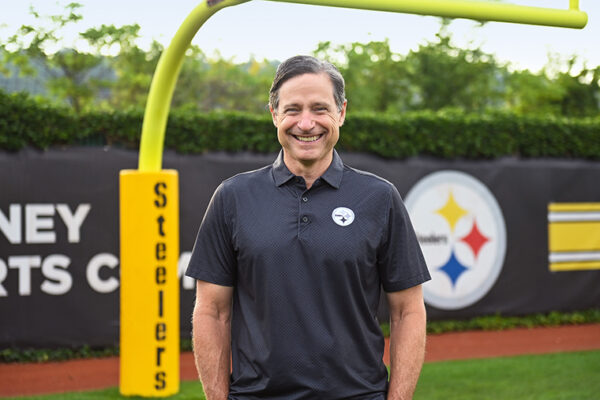“We knew at every step that the work we were doing was historic,” says Jonathan Kanter, JD ’98. As assistant attorney general for the DOJ’s antitrust division under President Joe Biden, Kanter spearheaded headline-drawing cases against corporate giants Google, Apple, Live Nation-Ticketmaster and others, earning the moniker “The Trustbuster” from The New York Times. In doing so, he’s helped define what it means to be a monopoly in the digital age — and what it takes to fight against them.
“These cases are not unlike the large antitrust cases I studied at WashU,” Kanter says. “Whether it was against Standard Oil or AT&T or Microsoft, a small number of seminal cases have become defining moments in the history of antitrust law and economic policy in our country. It was thrilling to be a part of that, bringing the next generation of cases that will define this area of law and policy for generations to come.”
By the time Kanter started his second year at WashU Law, he knew that he wanted to pursue antitrust as a career. John Drobak, the George Alexander Madill Professor of Real Property & Equity Jurisprudence, encouraged Kanter to pursue his first internship with the Federal Trade Commission (FTC). Kanter ended up working at the FTC for two years before joining several large law firms and eventually opening his own firm, focusing on antitrust enforcement.
Drobak also taught Kanter’s favorite class at WashU, a course on property rights offered jointly by the law school and the Department of Economics in Arts & Sciences. Co-taught by the late Nobel laureate Douglass North, the course’s interdisciplinary approach influenced how Kanter would go on to run the antitrust division at the DOJ.
“In addition to having top-flight lawyers and economists, we brought in data scientists and strategy experts,” Kanter says. “We really encouraged and built an interdisciplinary team, and that was a key ingredient of our success.”
That team landed major wins, such as a determination by a judge last August that Google’s online search engine is an illegal monopoly. Kanter also takes pride in lesser-known cases that he believes can lead to improvements in the daily lives of Americans.
One such case alleged that Agri Stats, Inc., illegally shared competitively sensitive information among meat processors, potentially leading to higher grocery prices. Whether in agriculture, housing, travel or a host of other industries, Kanter believes competition is essential to economic freedom.
“Competition and freedom go hand in hand,” he says. “The real essence of our country is freedom from tyranny, whether that’s tyranny by the government or tyranny by a company with as much power as a government.”



